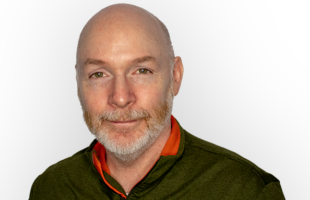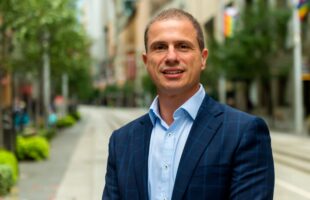
Facebook founder Mark Zuckerberg once said that in today’s rapidly expanding business world, the only strategy guaranteed to fail is not taking risks. It’s unlikely the internet entrepreneur was thinking about the international television distribution business when he said this, but his opinion couldn’t be more appropriate in today’s TV industry. With the marketplace increasingly crowded, injecting cash into shows when they are just treatments, or even before that, is now a necessary gamble for distributors to take as they look to secure the best product ahead of their rivals.
The likes of BBC Worldwide (BBCWW), ITV Studios Global Entertainment (ITVSGE) and FremantleMedia International (FMI) can all typically invest between 5% and 15%, sometimes more, of a show’s budget upfront in exchange for the global rights. It’s all in the hope that, if a programme becomes an international success, they can make a large return on their original investment. But spending on projects so early exposes them to financial dangers if that show fails to achieve sales success – much more so than investing later when the project is fully formed and has other talent and investors attached. Hence the game becomes about making sure this doesn’t happen. “If you just choose to invest huge amounts in development its one of the sure fire ways to lose your money,” says Caroline, Head of International scripted programming at Zodiak Rights, distributor of Canal+ supernatural drama Les Revenants (The Returned), “Our strategy is to be really targeted with our investment and invest in projects that we think have major international appeal.
“If we are going to invest in development, we really need at least one script and a good bible that shows what the story is going to be – you really have to be prepared to invest at that level. Generally, we would do a bible, a treatment and then possibly a script.”
Moreover, Caroline stresses the need for early input from broadcasters to avoid financial problems down the line. “If a producer has some commitment from a local that’s prepared to pay some of the distribution costs, we will come in and match that,” she says. Among recent pick-ups was English language history drama Versailles, which was in development for five years before the U.K. partnership of Simon Mirren (Criminal Minds) and David Wolstencroft (Spooks) came onboard the Canal+, Capa Drama and Incendo productions, Zodiak presold the series to a handful of companies such as SquareOne Entertainment, which distributes it in German-speaking Europe. And for Caroline, that’s an important component of getting a project of the ground. “These days there are some incredibly ambitious projects that need coproduces and presales right up front,” she says. “If a producer is looking for a coproduction or a presale, you need to be involved at the beginning.
Once that phase has happened and the project is funded, there’s usually an advance from a distributor, a minimum guarantee or something like that. We will always try to find presales to de-risk the project right through to fi nished tape sales.” Presales and minimum guarantees– an initial sum paid by distributors to producers to ensure the latter receives money irrespective of the project’s success – both play an important part in the investment strategy of FNI, which according to CEO Jens Richter is now moving further up the value chain of shows in which it invests. Recent FMI commitments include Channel 4 drama No Offence, from British writer Paul Abbott, and German Cold War drama Deutschland 83, which hails from Fremantle-backed drama shingle UFA Fiction (Generation War). “Deutschland 83 came to us at the ‘idea stage’ and then they had a script and a commission from a broadcaster. But there was a big financial gap that was unusually high for a German drama, but we still stepped in,” explains Richter, who declines to reveal the extent of Fremantle’s financial input.
“We took the risk with the show and it paid off – we got lucky.” Indeed, the eight-part series was presold into a number of European markets, including Canal+ in France, as well as a partnership with SundanceTV that sees the miniseries become the first German language drama to air on a major U.S. network. But in reality, it’s more than just about luck and there are plenty of stringent calculations that go into making sure FMI’s investments are not regretted. “We mitigate the risk by having deep market knowledge, but on the fi nancial side, we have a few different models we’re running,” Richter explains. “There are still people who come to us with a project fully financed and they just want us
to distribute it. But we also use the traditional minimum guarantee model, so it means our financial exposure is not too crazy.” Zodiak’s Caroline adds, “I’ve worked at the BBC, ITV, Endemol and now Zodiak and every company has a different way of calculating minimum guarantees. Ultimately, it’s about how many companies can recoup and how much risk they are prepared to make in relation to those sales projections.”
Beyond minimum guarantees is the co-financing level, explains Richter, who says the risk is greater but so is the potential reward. “Here, you become the real co-investor in the show, but you would also like to have a share of the back end because the risk is beyond the ordinary.” The former Red Arrow International MD agrees that it’s important to bring in a broadcaster early on but also warns that it will expect distributors to invest heavily if the project is deemed to have international sales potential. “As a rule of thumb, if it’s a very local show with local production and taste, the broadcaster will sign the cheque for the show,” he says. “But if it’s something with huge international appeal they would want a bigger contribution from us, which is fair. “This isn’t about the broadcasters wanting to put the risk somewhere else, it’s about them seeing international potential and wanting to work with somebody who can help them monetise that.” That said, BBCWW exec producer for drama Ben Donald says, “Distribution should take the utmost care to avoid taking too much of the risk themselves, believing they could easily fall into the trap of becoming P$50,000 adrift on an unsuccessful project. “If you’re putting more than 15% or 20% into a budget then something might be wrong, or you’re very brave, or the project is just really brilliant,” says Donald. “The minimum guarantee should be the last thing you look at. When I’ve been in talks with producers it’s all about the upfront value of my show and how much are you going to pay, among other things. I’ve seen about four to five different financing models coproduction over here. “You have to take into consideration questions about where the director wants to shoot or whether the lead actress really wants to spend the summer in Hungary. If you invest in development it’s complicated but you also want all the rights in the world.” Caroline agrees it’s imperative that early investments are rewarded with a proper share of the rights. “We don’t want to just take a sales commission; we want to share in the back end of the series because we have taken the risk upfront,” she says. But clearly, there isn’t a one-size-fits-all model. A case in point is the wide-ranging strategy of ITVSGE, which began investing recently in a slate of dramas via its U.S. production subsidiaries, among other commitments. Its U.S. shows include History’s miniseries Texas Rising (4×120),coproduced by A+E Studios and ITVS America and produced by ITV subsidiary Thinkfactory Media (Hatfields & McCoys), and NBC’s Aquarius (13×60), from Marty Adelstein’s Tomorrow Studios joint venture with ITV Studios U.S. “Rather than just acquiring those shows, we invested in a business and became in the production entity for our global group of companies,” says Ruth Clarke, EVP of Global Content and Co-production at ITVSGE, which is launched Beowulf: Return to the Shieldlands and Jekyll & Hyde at MIPCOM 2015. “To be able to do that, we have formed various partnerships and joint ventures. It’s important because, as a distribution business, it is all about the portfolio and being able to represent a range of shows.” Clarke maintains ITVSGE is open and fl exible” when it comes to identifying the point at which it should start investing in a project, conceding that it can often be a bit of a lottery. Indeed, last year the company acquired distribution rights to Swedish drama thriller Jordskott (10×60) and Clarke says she was swayed by the producers’ creative vision. “I read the scripts and thought they were fantastic. There was very little editorial input really, the guys just had the most fantastic creative vision for the project, as did (Swedish broadcaster) SVT,” says Clarke. ITVSGE also distributes BBC drama Poldark, which Clarke says was presold into a couple of territories before further investment was intentionally held back in order to wait for the rating success of the Mammoth Screen series to dictate future sales. “We are very glad we did that but there are obviously some shows you would like to do more with,” she says.
“It’s actually a large fi nancial puzzle that we try to work alongside producers and broadcasters to solve. We try to deliver a return to the producers but you have to be extremely smart to do that now, with budget going up and a plethora of tax credits everywhere.” But distributors hoping to invest early are certain to face a number of challenges thrown up by VoD giants including Netfl ix and Amazon. While a player like Netfl ix offers a further sales opportunity, the Californian streamer also insists on taking exclusive rights to all of its shows.
So is it worth a distributor putting all its eggs in one basket? Caroline says, “Netfl ix wants all the scripts written and all the talent and directors attached before it invest and that puts on huge pressure. Not many producers can afford that, but it also becomes incredibly risky as Netfl ix is going to do one project a year, maybe two. There will be a lot of people developing projects that won’t go anywhere.” Meanwhile, BBCWW’s Donald is concerned that producers may not be looked after by VoD outlets in the long run. “Netfl ix and Amazon are extremely aggressive,” he says. “One of our jobs is to look after producers over the long term, which means not just selling their shows in the fi rst cycle but also giving them attention and recycling those rights.” Former Sky Vision MD Carl Hall, now MD of London-based Warehouse 51 Productions, believes an even more frightening prospect for sales houses is the notion of a distributor affi liated with Netflix or Amazon. But even more pressing for Hall are the challenges facing medium-sized distributors down the line.
“You can’t be a mid-range distributor now,” he says. “You can be small and very niche and producers love you and give you work. But if you have to start something up for X million – Fortitude, for example – or you want to move into drama, most producers now want their money up front. “That’s squeezed the gap between when broadcasters can pay and when producers need their money, so you need very deep pockets to grow your catalogue. In Sky Vision’s case, it has channels behind it but it’s not an easy ride. It has to fi ght it out with all the others when something comes up. You’re either small and ultra-niche or you’ve got to be huge or somehow linked to a broadcaster.” So unless distributors have got a constant supply of reasonable product they don’t have to pay through the nose for, there could be diffi culties competing with the bigger players. It’s a point echoed by DRG founder Jeremy Fox, who notes, “In the U.K., there’s lack of drama available for distributors and 90% of the shows made here are produced by a golden circle of fi rms, many of which have distributors in-house or attached. The competition is intense. “But another risk is how distributors choose what drama to take from the U.S. It’s expensive and the defi cits of these things can be US$3m to US$4m.” To play the early investment game, which competition is forcing them to do, distributors need to be patient to see the fruits of their labours. But the worry is that some of them might go for a desperate gamble to avoid being squeezed out. Indeed, a; it takes is a punt too far and we could see some distributors fall by the wayside.








